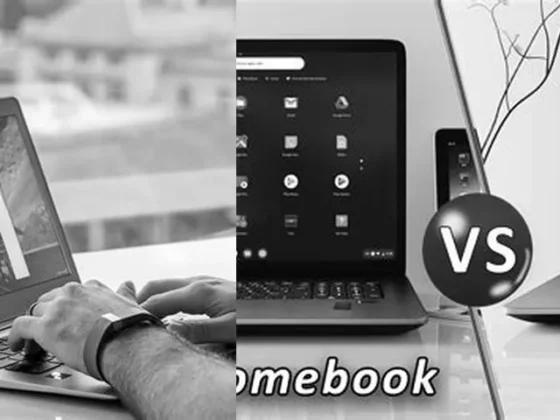Is It Ok To Install Windows On Chromebook: Is It Ok To Install Windows On Chromebook? Let’s Find Out!
Are you a proud owner of a Chromebook, but find yourself yearning for the familiarity of the Windows operating system? Well, you’re not alone! Many Chromebook users wonder if it’s possible to install Windows on their beloved devices. In this blog post, we will delve into the world of Chromebook ecosystems, explore the technical challenges of installing Windows, and discuss the feasibility of running Windows applications on a Chromebook. So, grab a cup of coffee and join us on this exciting journey of discovery!
Understanding the Chromebook Ecosystem
Before diving into the technicalities of installing Windows on a Chromebook, it’s essential to understand what a Chromebook is designed for. Chromebooks are streamlined devices optimized for ChromeOS, an operating system developed by Google that is based on the Linux kernel. ChromeOS is lightweight, secure, and primarily cloud-based, which allows for fast boot times and long battery life.
ChromeOS has a distinctive ecosystem with default applications and services that are closely integrated with Google’s suite of productivity tools. This integration is beneficial for users who are deeply entrenched in the Google environment and rely on apps like Google Drive, Gmail, and Google Calendar.
ChromeOS vs. Windows: A Comparison
ChromeOS is celebrated for its simplicity and efficiency. It’s designed to be user-friendly and robust against malware, thanks to its sandboxed environment and automatic updates. On the other hand, Windows offers a more traditional desktop experience with a broader range of software compatibility, making it the go-to operating system for many businesses and individuals.
Despite these differences, some users may contemplate whether they can have the best of both worlds by installing Windows on their Chromebook. Let’s explore the implications of such a decision.
Technical Challenges of Installing Windows on a Chromebook
Installing Windows on a Chromebook is not a straightforward process. There are several reasons why this endeavor is laden with complexity and potential issues.
Hardware Compatibility Concerns
Most Chromebooks are built with hardware that is specifically optimized for ChromeOS. This means that the processors, memory, and storage configurations are tailored to run a lightweight OS efficiently. Windows, being a more demanding operating system, might not perform well on Chromebook hardware, leading to sluggish performance and poor battery life.
Driver and Firmware Hurdles
Another significant challenge is the lack of official drivers for Windows on Chromebook hardware. This can result in non-functional components such as trackpads, keyboards, or webcams after installation. Additionally, modifying the firmware to allow Windows to boot can be a risky process that might render the device unusable if not done correctly.
Voiding Warranty and Support
By installing Windows on a Chromebook, users might void their warranty and lose access to official support. This could be problematic if issues arise that require professional assistance or hardware replacement.
Running Windows Applications on Chromebook
For those who need access to specific Windows applications, there is a silver lining. Chromebooks offer the ability to run Windows applications without needing to install the Windows OS itself.
Using Paid Software Solutions
There are paid software solutions, such as Parallels Desktop for Chromebook Enterprise, that allow users to run full-featured Windows applications on Chromebooks. These solutions create a virtual machine within ChromeOS, providing a seamless way to access Windows software while maintaining the integrity of the Chromebook’s ecosystem.
Benefits of Using Windows Apps in ChromeOS
By using virtualization software, users can enjoy the benefits of both ChromeOS and Windows. They maintain the security and battery efficiency of a Chromebook while gaining the ability to run necessary Windows software. This approach avoids the pitfalls of installing a full Windows operating system on hardware that’s not designed for it.
Is Installing Windows on a Chromebook Worth the Effort?
Given the complexities and potential problems associated with installing Windows on a Chromebook, one might wonder if it’s worth the effort.
Evaluating Your Needs
If your primary reason for considering Windows on a Chromebook is to use certain applications, it may be more practical to explore virtualization software or even consider purchasing a dedicated Windows laptop. This decision should be based on your specific use case and the necessity of Windows-exclusive features.
Long-Term Implications
It’s also important to think about the long-term implications of such a modification. Even if the installation is successful, future updates from either Google or Microsoft could potentially disrupt the functionality of your device. Sticking with ChromeOS ensures that your Chromebook remains stable and supported.
Conclusion: Embracing the Strengths of ChromeOS
While the allure of running Windows on a Chromebook may be tempting for some, it’s clear that the potential drawbacks outweigh the benefits for most users. Chromebooks are designed to excel with ChromeOS, delivering a user experience that leverages cloud computing and Google’s ecosystem.
Enhancing Chromebook Experience without Windows
For those looking to enhance their Chromebook experience, exploring the native capabilities of ChromeOS, such as Linux app support and Android app integration, can provide additional functionality without compromising the system’s stability.
Making an Informed Decision
In the end, whether or not to install Windows on a Chromebook is a decision that requires careful consideration of the facts and a clear understanding of your needs. For most users, embracing the strengths of ChromeOS and utilizing virtualization for Windows apps when necessary will be the most prudent and effective choice.
In our journey to find the best approach to using Chromebooks, it’s clear that these devices shine brightest when used as intended, with ChromeOS at the helm. By recognizing the limitations and embracing the advantages of the Chromebook ecosystem, users can enjoy a computing experience that is both efficient and tailored to their needs.
FAQ & Related Questions about Installing Windows on Chromebook
Q: Can I install Windows on a Chromebook?
A: Yes, it is possible to install Windows on a Chromebook, but it is not recommended due to the complex process and potential problems that can arise during and after installation.
Q: Why is it not recommended to install Windows on a Chromebook?
A: Most Chromebook models are not designed to run Windows. They are optimized for ChromeOS, which provides better battery life and a more seamless experience. Installing Windows can lead to compatibility issues and other complications.
Q: Can I run Windows apps on a Chromebook?
A: While installing Windows on a Chromebook is not recommended, you can still run Windows apps on a Chromebook using paid software. This allows you to access Windows applications without fully replacing the ChromeOS operating system.
Q: Can I download Windows 11 on a Chromebook?
A: To install Windows 11 on a Chromebook, you need a powerful Chromebook with a 64-bit Intel or AMD processor, at least 128GB of storage, and 8GB of RAM. However, it is important to note that installing Windows 11 on a Chromebook may still come with compatibility issues and is not officially supported by Chromebook manufacturers.


